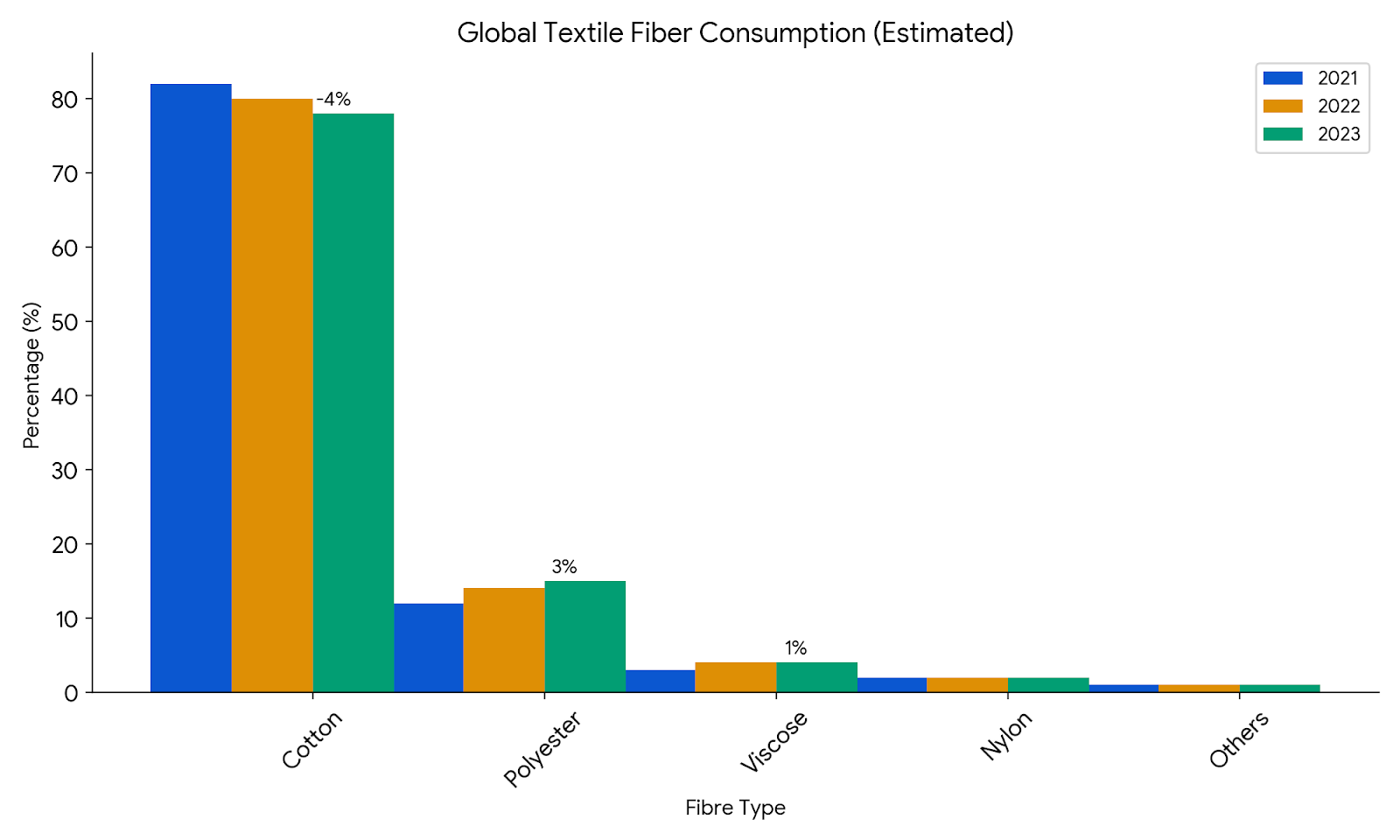Indian knitting fabric sector shifts fibre play, as sustainability, innovation take priority.
For decades, the Indian knitting fabric industry has played a vital role in the global textile landscape. However, recent years have witnessed a significant shift in its ‘fibre play’ – a move towards sustainability and innovation that is transforming the sector. This shift is not just about ticking eco-friendly boxes; it's a story of resilience, adaptation, and weaving a brighter future for the industry.
Cotton use shrinking as other fibers gain
While cotton remains a significant player, its share in the knitting fabric market has declined from 85 per cent in 2018 to 78 per cent in 2023 says a report. Meanwhile there has been significant rise in use of man-made fibres like polyester, viscose, and nylon, with their market share rising from 13 per cent in 2018 to 18 per cent in 2023. While polyester's share rose from 10 per cent in 2019 to 14 per cent in 2023, viscose and nylon experienced a combined increase of 3 per cent.
The use of speciality fibres like bamboo, recycled PET, and organic cotton is on the rise, catering to niche markets and eco-conscious consumers. Blending natural and man-made fibres is gaining popularity. This trend offers a combination of desired properties, like cotton's breathability and polyester's wrinkle resistance. The demand for technical textiles, used in sportswear and activewear, is propelling the use of specialized fibres like spandex and elastane.
Fibre consumption in knitting fabric industry (2021-23)
|
Fibre Type |
2021 (%) |
2022 (%) |
2023 (%) |
Change (2021-2023) |
|
Cotton |
82 |
80 |
78 |
-4% |
|
Polyester |
12 |
14 |
15 |
+3% |
|
Viscose |
3 |
4 |
4 |
+1% |
|
Nylon |
2 |
2 |
2 |
0% |
|
Others (Linen, Tencel, etc.) |
1 |
1 |
1 |
0% |

The ground scenario
The change in fiber use can be seen across manufacturing hubs in India. Tiruppur for example, known for its cotton prowess, is now actively exploring blends with recycled polyester and Tencel. Major brands like Nike and Adidas are driving this shift. Knitwear exporter Gokaldas Exports saw a 20 per cent increase in demand for recycled polyester clothing in 2023, highlighting the growing shift towards sustainable fibres. Similarly, Ludhiana, the hosiery hub in North India is witnessing a surge in demand for performance fabrics like nylon and merino wool. The hub is also incorporating acrylic and polyester blends for cost-effectiveness and warmth in winter wear. Leading hosiery manufacturer Rupa & Company reports a significant rise in the use of viscose-blended yarns for their innerwear range, citing consumer preference for comfort and affordability.
Fashion-forward Delhi is embracing innovative fibers like Modal and Tencel for their drape and comfort. The fashion capital sees a diverse fibre play with growing demand for rayon and linen blends for summer wear and sustainable alternatives like bamboo fibres. Sustainability-conscious Mumbai is seeing a rise in organic cotton and recycled polyester blends. Textile expert Sunil Kumar attributes the shift to a combination of factors: "Rising cotton prices, coupled with growing environmental concerns and evolving consumer preferences, are driving the adoption of alternative fibres." Ahmedabad the denim hub is experimenting with Lyocell and hemp blends for eco-friendly denim options.
The knitting fabric industry in India is undergoing a significant transformation in its fibre choices. Sustainability, cost, and innovation are driving the adoption of man-made and specialty fibres, while cotton retains its importance. This shift presents exciting opportunities for manufacturers to cater to diverse consumer demands and build a more sustainable textile sector.
